Do I go tankless water heater or wait for 75-gal gas heater?
tracey_b
13 years ago
Featured Answer
Comments (7)
jakethewonderdog
13 years agoRelated Discussions
75 gal. or 50 gal. hot water heater
Comments (8)I think you need a 75 gallon model or, if your water supply isn't too hard, a tankless heater. With a 2.5 gpm shower head mixed at 2/3rds hot and 1/3 cold, a 50 gallon tank gives you 30 minutes of showering. At that point, you have 50 gallons of (at best) lukewarm water in the tank. You'd probably need to wait 30 minutes from that point until the water in the tank is again hot. If two are showering at once and no other hot water is being used, it'll start getting cool after about 10 minutes. If you're using a lot of hot water, there isn't going to be that much difference in operating expenses between the two sizes, you're going to be burning BTUs to heat water either way. You can easily cover the cost difference with the savings you'd have by replacing your old washer with a front loader....See Moreservice from BOTH old water heater and tankless water heater ?
Comments (4)We don't want to shut off the water when the remodel to the room is finished. We just want to switch the water source . For example after finishing the hall bath, can water coming from the water heater in the attic be switched via the remodel process to the new tankless water heater that will not be in the attic? But still will need the old water heater for rooms not yet remodeled and whose plumbing hasn't been upgraded to copper,etc. Can both water heaters be running at same time? For example keeping the master bath and the kitchen still using the water heater in the attic because plumbing will not be complete yet that routes them to tankless. So we will have both tankless not in the attic and the old water heater in the attic working at the same time but just servicing different rooms. Can we do that? I didn't specify since I'm not a plumber but I can't help thinking that main issue is that you need gas going to both water heaters and water from the outside being routed into both water heaters. Not sure if this is possible to do. Then after 6 months or a year when all rooms are remodeled and have their galvanized pipes replaced with copper, etc. and have plumbing routed to new location of tankless, the old water heater in the attic can be shut down because it won't be used....See MoreTank Water Heater vs. Tankless Water Heater
Comments (4)Guys if you read the post, the reason the tank water heater was so expensive was due to the construction required to get his house up to code. I personally like my tank heater. If your changing from a tank to tankless there is alot of work to do. Moving water lines, moving gas lines (possibly upgrading gas line size too) and running a new intake/exhaust if using gas, upgrading the main service amps if using electric. Some things to consider Tank Heater Pros Costs less to replace in the future Easier to maintain (Tank water heaters are easy to flush out every year) Easier to install (dont have to upgrade gas line or main service amps) Gas water heater will still operate in power outage (electric will still have some hot water to use for a while till power kicks back on). Cons Not as efficient as tankless No Tax Credits Hot water limited by FHR (first hour rating) Tankless Heater Pros Unlimited hot water More efficient Saves space Cons Will cost more in the future to replace (there is no guarantee the tankless will last longer than a tank version, the heat exchanger can go bad and that is the most expensive part of the tankless) , Harder to maintain (you need to try to clean those tankless heaters out every year with a descaler so they stay working efficiently) Harder to install (upgrade gas line or main service amps) Tankless heaters have a limited throughoutput. While it is unlimited hot water, it can only supply so many gallons of hot water at a time Will not operate in a power outage. A tankless water heater is controlled by electronics whether the heater is gas or electric does not matter. Requires minimum gallons per minute from city water supply, some people have not been able to install due to that problem. Consumer reports note that users complain of inconsistant water temperatures. http://www.consumerreports.org/cro/appliances/heating-cooling-and-air/water-heaters/tankless-water-heaters/overview/tankless-water-heaters-ov.htm Another good site to look at: http://www.waterheaterrescue.com/pages/WHRpages/English/Longevity/tankless-water-heaters.html...See MoreTwo 75 gal. gas water heaters - replace?
Comments (2)Wow, 6+ showers! Do 6+ people take showers at the same time? In other words evaluate how much hot water you need in a particular time period. Anyway, we have recirc system. Rather than use the built in timer, I use X-10 devices to control the pump. We turn it on a few minutes ahead of use at a particular point of use then turn it off (unless it is the dishwasher or clothes washer which run for longer periods of time.) The downside is that one has to time how long it takes for hot water to reach the various points of use . There are other remote control technologies such as Insteon, Z-Wave, etc. If you don't have the return line available, there are pumps that use the cold line as a return that are usually installed at the farthest point.....See Moretracey_b
13 years agosusanelewis
13 years agotracey_b
13 years agosusanelewis
13 years agojollyrd
13 years ago
Related Stories

GREAT HOME PROJECTSHow to Switch to a Tankless Water Heater
New project for a new year: Swap your conventional heater for an energy-saving model — and don’t be fooled by misinformation
Full Story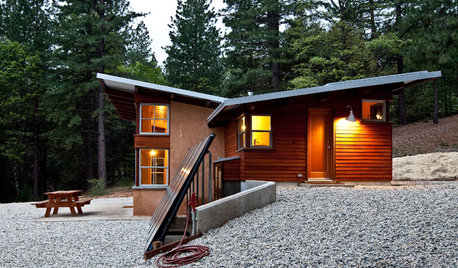
GREAT HOME PROJECTSHow to Add a Solar Water Heater
Lower energy bills without a major renovation by putting the sun to work heating your home’s water
Full Story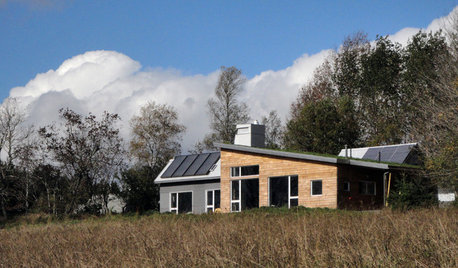
GREEN BUILDINGHouzz Tour: Going Completely Off the Grid in Nova Scotia
Powered by sunshine and built with salvaged materials, this Canadian home is an experiment for green building practices
Full Story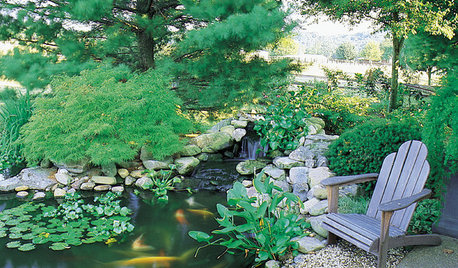
GARDENING AND LANDSCAPINGHow to Make a Pond
You can make an outdoor fish paradise of your own, for less than you might think. But you'll need this expert design wisdom
Full Story
REMODELING GUIDESThe Case for Waiting to Remodel
We know, you're excited to make your home match your vision. But your vision may change once you've lived there awhile
Full Story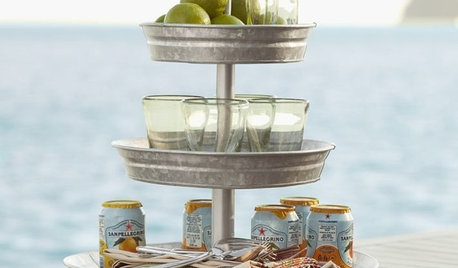
PRODUCT PICKSGuest Picks: Set Up an Outdoor Living Room
With an outdoor movie screen, a patio heater or fan, and scads of entertaining essentials, you may never want to go back inside
Full Story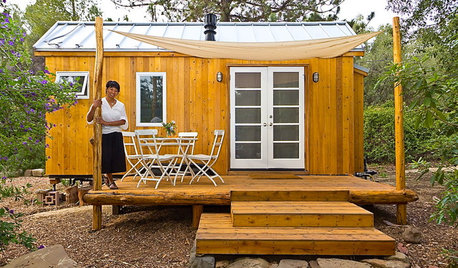
MOST POPULARHouzz Tour: Going Off the Grid in 140 Square Feet
WIth $40,000 and a vision of living more simply, a California designer builds her ‘forever’ home — a tiny house on wheels
Full Story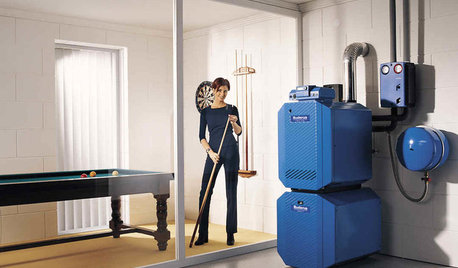
HOUSEKEEPING5 Steps to Improve Your Heating System Now
Increase your heater's efficiency and safety for lower energy bills and greater peace of mind this winter
Full Story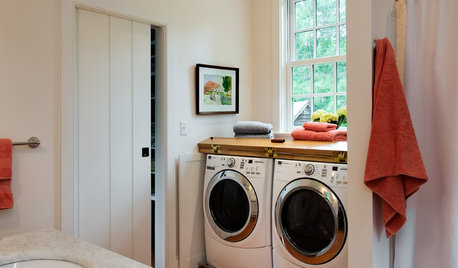
GREEN BUILDINGWater Sense for Big Savings
Keep dollars in your pocket and preserve a precious resource with these easy DIY strategies
Full Story
SAVING WATER11 Ways to Save Water at Home
Whether you live in a drought-stricken area or just want to help preserve a precious resource, here are things you can do to use less water
Full Story


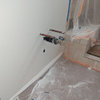
dan_martyn